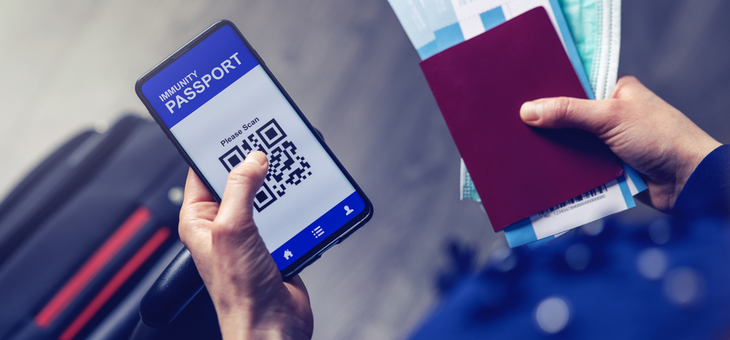Air New Zealand’s trial a digital health pass on flights to Australia could be the blueprint for future digital ‘vaccine passports’ and a glimpse into post-COVID travel requirements.
Should the trial prove successful, it may pave the way for what travellers need to prove that they have been immunised against COVID-19 and are safe to fly with other passengers.
The airline said the trial would use the International Air Transport Association’s (IATA’s) Travel Pass app on its Auckland-Sydney flights in April.
Read more: Research shows vaccine willingness in Australia is high
The app will inform passengers of the tests, vaccines and proof they’ll need to enter their destination. Participating health providers will also be able to provide verified test results, vaccination certificates and other documents directly to the app.
Air New Zealand will be the first airline to use IATA’s app, but other airlines have already stated they plan to use it in the future.
Australia’s COVID-19 vaccination program began in early March and New Zealand’s rollout in mid-March. Both countries have managed to keep the outbreak under control through lockdowns, quarantine and contact tracing, and are still working through plans for a two-way bubble.
COVID-19 vaccines are not required for international travel at the moment, but that will almost certainly change.
Qantas became the first major airline to openly say it would require international passengers to prove that they’d had a COVID-19 jab before boarding.
Read more: Australia, New Zealand and Singapore talking three-way bubble?
Many other airlines’ vaccine policies aren’t as clear cut yet, but most require passengers to present proof of a negative COVID-19 test fewer than 72 hours old before a flight.
While vaccines travel passes will almost certainly be a condition of flying in some form, according to Forbes, some critics have expressed concern over privacy and discrimination against citizens from nations slow to roll out a vaccine program.
“The use of digital certificates for travel is concerning – it has implications for human rights, and it limits access to travel,” Raman Jit Singh Chima, Asia policy director at digital rights non-profit Access Now, told Reuters.
“Any vaccine certificate needs to be carefully regulated, with a clearly defined and narrow purpose of checking if someone has received the vaccine. It should not be used to limit people from travel, livelihoods or societal participation.”
How do you feel about providing proof of vaccination before boarding? Will you be surprised or concerned if/when it’s made a condition of travel? Share your thoughts in the comments section below.
If you enjoy our content, don’t keep it to yourself. Share our free eNews with your friends and encourage them to sign up.

